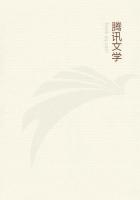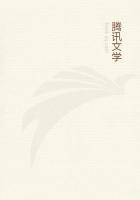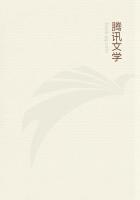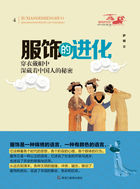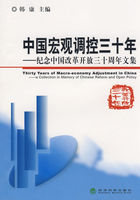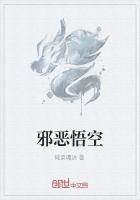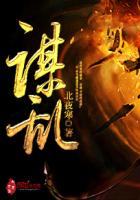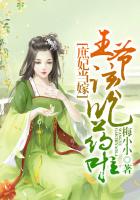B/AXTER cannot be justly described as a leader or a follower of the Scottish school.His method is not really nor professedly that of inductive observation.He belongs rather to the school of Samuel Clarke, to whom he often refers, and always with admiration.But be was a Scotchman, and an independent thinker: he does not belong to the old philosophy; but he was a contemporary of the men who founded the Scottish school, and treated of many of the same topics.
He had readers both in England and Scotland in his own day, and for some years after his death; and he deserves a passing notice as the representative of a style of thought which met with considerable favor in his time, but had to give way before the new school.{43}
We have a life of him in Kippis's " Biographia Britannica," drawn up from materials supplied by his son.He was the son of a merchant in Old Aberdeen, where he was born in 1686 or 1687.His mother was Elizabeth Frazer, descended from a considerable family in the north.He was educated at King's College, Aberdeen, where, at the beginning of last century, he would be trained in the old logic and metaphysics.But, as we shall see more fully in future articles, a considerable amount of a fresh literary taste, and of a spirit of philosophical inquiry, began to spring up in Aberdeen in connection with the two Universities pretty early in that century.Baxter, besides being a good mathematician, was well acquainted with the discoveries of Sir Isaac Newton, and with the theories of Leibnitz as to matter and motion.He was familiar with the Essay on the Human Understanding, but had a deeper appreciation of the speculations of Clarke.
The chief professional employment of his life was that of tutor to young men of good family.The boys who, in our days, would be sent to the great public schools of England taught by Oxford or Cambridge masters, were very often, in the seventeenth and eighteenth centuries, put under tutors, who went about with them to the colleges at home, or travelled with them abroad.The occupation of teaching and travelling tutor was one coveted by young men of limited means and of a reading taste, who did not wish officially to enter the church, and had no other office open to them than that referred to, fitted to furnish them with means of study.When the tutor had trained and travelled with the heir of a good estate, the family felt bound to make provision for him for life.It was thus that, in the seventeenth century, Hobbes had been tutor to two successive Earls of Devonshire; that, in the eighteenth century, Thomson the poet became tutor to the Lord Chancellor Talbot's son on the Grand Tour; that Hume coveted the office of travelling tutor to Murray of Broughton; and Turnbull and A.Smith gave up chairs in the Scottish colleges to become tutors, -- the one to the Wauchopes of Niddrie (?) and the other to the Duke of Buccleuch Baxter was tutor, among others, to Lord John Gray, Lord Blantyre, and Mr.Hay of Drummelzier.
In the spring Of 1741, he went abroad with Mr.Hay, having also Lord Blantyre under his care.He resided some years at Utrecht, and thence made excursions into Flanders, France, and Germany.Carlyle met him -- " Immateriality Baxter," as he calls him -- at Utrecht in 1745, and says of him, 'though he was a profound philosopher and a hard student, he was at the same time a man of the world, and of such pleasing conversation as attracted the young." His son bad described him as being at polite assemblies in Holland, and a favorite of ladies; but a writer in the Corrigenda of the following volume of the " Biographia," after mentioning that he saw him daily for more than two years at Utrecht, declares: " His dress was plain and simple, -- not that of a priggish French man, but of a mathematician who was not a sloven.I am pretty well persuaded that while in the Low Countries, he never had any conversation with women of higher or lower degree, unless it were to ask for the bill at an ordinary, or desire the servant maid to bring up the turf for his chimney." The same writer describes him as a "plain, decent, good humored man, who passed all his time, but {44} what was bestowed at his meals, in meditation and study." His son describes him as social and cheerful, and extremely studious, sometimes' sitting up whole nights reading and writing.
In 1724, he had married the daughter of Mr.Mebane, a minister in Berwickshire; and, while he was abroad, his wife and family seem to have resided at Berwick-on-Tweed.In 1747, he returned to Scotland, and resided till his death at Whittingham, in East Lothian, where he employed himself in country affairs, and in his philosophic studies.In his latter years, he was much afflicted with gout and gravel.In January 29, 1750, he wrote to (the afterwards notorious)John Wilkes, with whom he bad formed a friendship in Holland, " I am a trouble to all about me, especially my poor wife, who has the life of a slave night and day in helping to take care of a diseased carcass." He had long, be states, considered the advantages of a separate state, but "I shall soon know more than all men I leave behind me." He died April 13, 1750, and was buried in the family vault of Mr.Hay at Whittingham.
He wrote a book in two volumes entitled " Matho," being a compend of the universal scientific knowledge of the day.
He published his principal work, " An Inquiry into the Nature of the Human Soul," in 1733, and it reached a second edition in 1737.In 1750, shortly after his death, was published, "An Appendix to his Inquiry into the Nature of the Human Soul." He had taken a great body of manuscripts with him to Holland; in the letter referred to, he speaks fondly of his unfinished manuscripts, in which he had discussed " a great many miscellaneous subjects in philosophy of a very serious nature, few of them ever considered before, as I know of" In 1779, the Rev.Dr.

